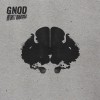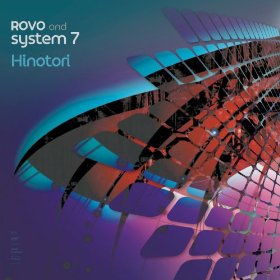 Sprawling its way across three sides of vinyl and two CDs, Infinity Machines is Gnod at their most epic. There’s a lot of it and can feel initially daunting to step into it as you realise the weight of expectation, and the fact that your brain has to disseminate so much music, creep up on you. So I’m going try my best at reviewing such a large body of work that has all the mystical trappings of being almost progressive, but steps away into a realm of its own.
Sprawling its way across three sides of vinyl and two CDs, Infinity Machines is Gnod at their most epic. There’s a lot of it and can feel initially daunting to step into it as you realise the weight of expectation, and the fact that your brain has to disseminate so much music, creep up on you. So I’m going try my best at reviewing such a large body of work that has all the mystical trappings of being almost progressive, but steps away into a realm of its own.
“Importance of Downtime” starts so quietly it hardly registers at first. Its drifting sonic feeling is one of ritual music put through the envelope of a satanic Eno. In fact, there is a hint of The Virgin Prunes‘ “Din Glorious” from their A New Form of Beauty album. Chattering voices peak up occasionally, but the tone here is more subdued than on earlier tracks. Its rhythm pattern is slight, giving a midnight meditation at the Process Church kind of vibe to it. The trance effect from the piece seems to take over your entire room and the feeling that candles should be lit as you contemplate the music takes over the mood of the track.
“White Privileged Wank” has the kind of title that wouldn’t be out of place on TG’s Second Annual Report. The slow droning bass synth intro slowly builds from imperceptible to full on sturm und drang, industrial soundscapes that sound like electrified insects crawling. It’s a dirty crunching sound that mixes early Human League electronics with harsh guitar and Einstürzende Neubauten-style percussion. The track becomes a deafening roar as more elements are added into its brew.Half way through, the track breaks down, only seemingly to re-emerge with more venom in its giant bass notes. This hits a point of almost becoming psychedelic as it trips so far out there that its never coming back until “Spinal Fluid” hits the calm esoteric button as it meanders like a stream through a series of gentle atmospherics underscoring a spoken-word vocal. Slowly the electronics begin to splutter into life and here, yet again, I am reminded of Coil’s output; however, this is more Musick To Play In the Dark territory. The message the lyrics expound do however get rather obfuscated by the electronic rhythms that carry the remainder of the track through.
When the drums and sax finally hit in is when things begin to take on the atmosphere of a Seventies horror film soundtrack. But “Infinity Machines” is more than just these parts; it becomes a music that transcends boundaries. Is it jazz? Industrial? Psychedelic? Ambient? It is all these things, and for some reason they work together to make the track sit in a space of its own; like a conjuration of ancient gods the music seems out of its own time and place.
In the end, Infinity Machines is a difficult album to sum up in a few words. It’s an album to take you on a journey and it’s not always an easy record to come to terms with musically. But like all important works of art, you need time to appreciate its many facets and indulge the time to immerse yourself in it. It’s a brave album and its layers will probably become more apparent after repeated listens. Infinity Machines is quite simply Gnod at their best.-Gary Parsons-



